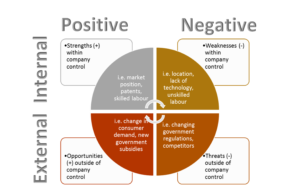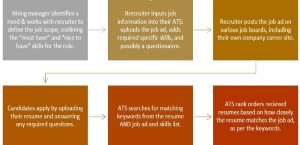In response to a recent viewer question, here are my top 8 tips for conducting your job search.
- Know what you want – It is important that you do the self-reflection needed to help you determine the best career path for you. My previous blog post discusses this in detail. As mentioned in that post, if you don’t know what you’re looking for, how will you ever know that you’ve found it?
- Create a Target Company List – While going through the exercise in step 1, think about which companies would have the attributes that are important to you and employ the skills and experience you have. Having a top 10 target company list will streamline your research, networking, and job search efforts. As a result, you will be able to make efficient use of your job search time.
- Company Websites & Social Media
- Company Website: Most companies have websites, and many companies have a career section on their website. Be sure to visit their sites, taking note of any current openings they may have that match your background. While going through this exercise, try to notice any trends that you might see in terms of keywords or qualifications listed in the job ads. In many cases, company career sites will have the option for you to sign up for a ‘job search agent,’ which will notify you of relevant openings when they become available. As a cautionary note, do not apply to too many roles within your target company – this may give the company the impression that you are not focused or are desperate.
- Social Media: Be sure to check out their LinkedIn, Facebook and Twitter pages. LinkedIn is a wonderful resource for conducting research and identifying people within your target organizations with whom you may wish to network. In some cases, companies may have a Twitter career page. Be sure to follow such pages so that you are the first in the know for any roles that may come available. As a final note, remember that employers may check your online profiles, so it is important that your online presence is updated and professional.
- Network – Networking is critical to any job search. You never know who you might know who works in your target organization, or who knows someone else who works there. Tapping into your network is a great way to find jobs the company might have available, the skills they look for, and uncover the hidden job market. Where possibly, try to set up interest interviews with your target company. Before tapping into your network or going on any interest interviews, be sure to have your elevator pitch ready. For more information about crafting your elevator pitch, check out my blog post here. Click here for a copy of my networking guide.
- Job Boards – There are a wide variety of job boards available to you. The most popular job boards include Monster and Workopolis, but there are also government sponsored job boards that you can find for your province, country, or state. In addition to these more traditional job boards, there are job aggregator boards which scrape job ads from across the internet and aggregate them onto their site. Examples include Indeed and Eluta. Much like the company career sites mentioned above, you can set up ‘job search agents’ on these sites so that you are notified of job postings as they become available.
- Industry Associations – Your company list may fall into one or more industry segments. Search any industry associations in which your target company/companies may participate. Such industry association websites may have their own job boards or a list of upcoming industry events. Attending industry events is a great way to grow your professional network and potentially learn about new job opportunities.
- Recruitment Agencies – As mentioned in a previous blog post, recruiters in recruitment agencies are a great, mostly free, resource. Not only will recruitment agencies have a variety of job opportunities available, recruiters are typically very knowledgeable about the latest industry and company trends. In some cases, recruitment agencies may also have knowledge of opportunities in the hidden job market. For more insight on working with recruiters, check out my previous blog post here.
- Make a Plan – While conducting your job search, it is important to keep yourself organized and to create an action plan. Set weekly goals for the number of jobs you apply for and the number of networking contacts you are going to email. Remember to build in time for research, interviewing, and tailoring your resume. Not only will this keep you focused, but it will also keep you organized.
I hope you found these tips helpful. If you have any other tips on job searching, please feel free to leave a comment below. Also, if you would like personalized advice, please check out the services section or send me an email – I’d be happy to help!
Until next time, happy hunting!










